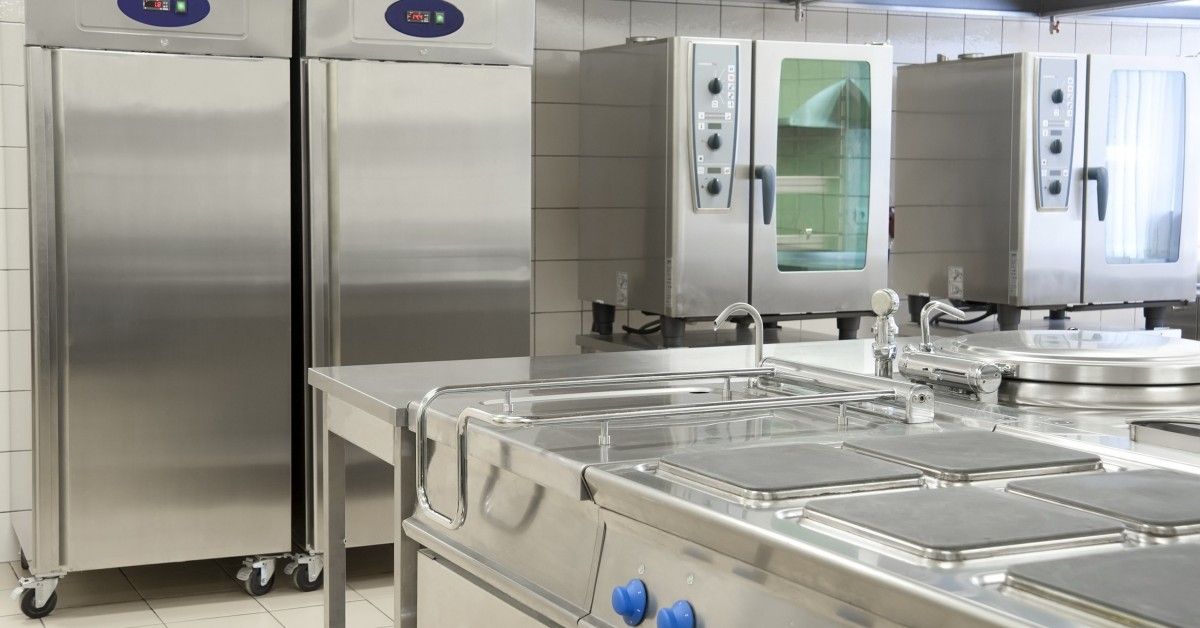Owning a business is never easy — it requires hard work, dedication, and plenty of resources. Over the past couple of decades, the market for small and independent food businesses has exploded with thousands of people focused on bringing their idea for a food truck, catering business, or new food product to life.

An Introduction To Shared Kitchen Terminology
For most people, none of this would be possible without the option to rent kitchen space. Buying or renting your own private kitchen is extremely costly, not just because of the price of real estate, but because there are so many other overhead costs such as equipment, utilities, permits, and more. To meet the needs of the small business owner, companies such as iKitchens have risen to meet the demand of those looking for a kitchen rental. Based in San Jose, iKitchens is dedicated to helping people achieve their culinary dreams by offering convenient, flexible kitchen space for one affordable monthly fee.
If you’re interested in renting a kitchen, then you may have heard people use terms such as “shared kitchen”, “kitchen incubator”, and “ghost kitchen”. These terms are sometimes used interchangeably and can often lead to significant confusion about what their name really means with regard to their purpose. Part of our job at iKitchens is to help educate current and aspiring food enthusiasts on how to navigate the often complex world of working the culinary business. That’s why, in today’s blog, we’re going to get back to basics and discuss some of the most common shared kitchen terminology. Keep reading to learn more.
Shared Kitchen
Let’s start with discussing what is meant by a shared kitchen. As the name implies, a shared kitchen is a single location where multiple food businesses share the space and equipment. That’s just a simple definition — shared kitchen spaces can be configured in multiple ways, offering various packages to suit their customer’s needs. Some allow you to rent by the hour, while others may require you to sign up for a specific block of time that remains fairly consistent each week. In all cases, shared kitchens are expected to already be licensed, approved, and certified for commercial use.
Dedicated Kitchen
Dedicated kitchens refer to space where a business may want to have sole use of the space and the equipment within it. Although a dedicated kitchen isn’t ideal for everyone, for businesses with larger time or use requirements, renting dedicated space can ensure they have the resources they need, whenever they need them.
Dedicated kitchens are also a good option for those that do require strict segregation of equipment and materials, such as in gluten-free cooking and baking. Renting dedicated kitchen space will ensure that you can have complete control over your products and not have to worry about cross-contamination.
Incubator Kitchen
Incubator kitchens are also referred to as culinary incubators and their purpose is to support the growth and startup of emerging businesses. Unlike traditional shared kitchens, incubator kitchens often provide support and mentoring opportunities through classes and networking events. However, for businesses who are just looking for the space to carry out their product development efforts, a shared kitchen will likely do.
Commissary Kitchen
A commissary kitchen is essentially another term for a shared kitchen. They are places where food service businesses can go to prepare their food. The term “commissary” is commonly used to describe a kitchen that food truck owners can go to prepare and store their food. They often offer food trucks a place to also store their vehicles.
Ghost Kitchen
The term ghost kitchen was a fairly new term before 2020, but with so many restaurants being closed to dine-in seating, delivery became the way to get food to the people. A ghost kitchen is a kitchen that is used to prepare food for delivery only, and it may or may not be a shared kitchen. The focus of a ghost kitchen is to fulfill online food orders that are placed through third-party delivery apps or a restaurant's own delivery operation.
Commercial Kitchen
A commercial kitchen is a commercially licensed space where people can go to legally prepare meals and packaged goods for public sale. A commercial kitchen is designed for production efficiency and food safety. It must be licensed and inspected, and depending on its purpose and location, may require certain additional permits. All of the kitchens described above fall under the umbrella term of a commercial kitchen.
Looking For a Kitchen Rental in San Jose? Contact iKitchens
Hopefully, today’s blog has helped to shed some light on the various types of commercial kitchens. If you’re looking for a kitchen rental to support your growing business or to use it as a means to start your culinary dream, we encourage you to reach out to iKitchens. We offer flexible, shared, and dedicated kitchen space for one affordable monthly fee. To learn more, fill out our online contact form or give us a call today!
